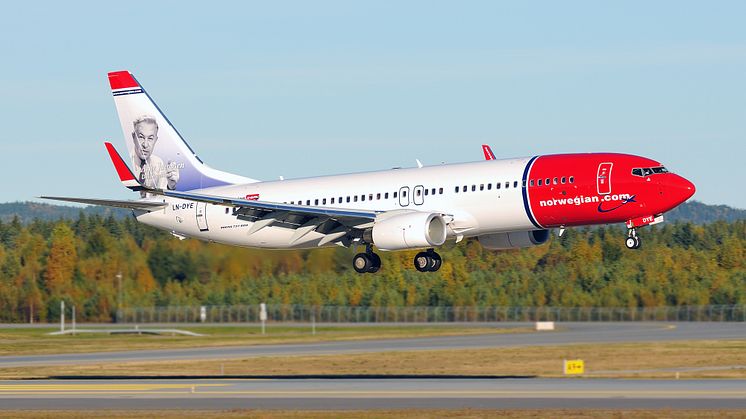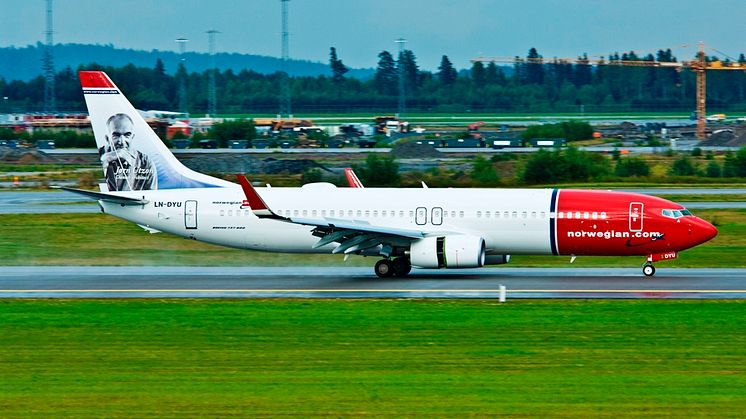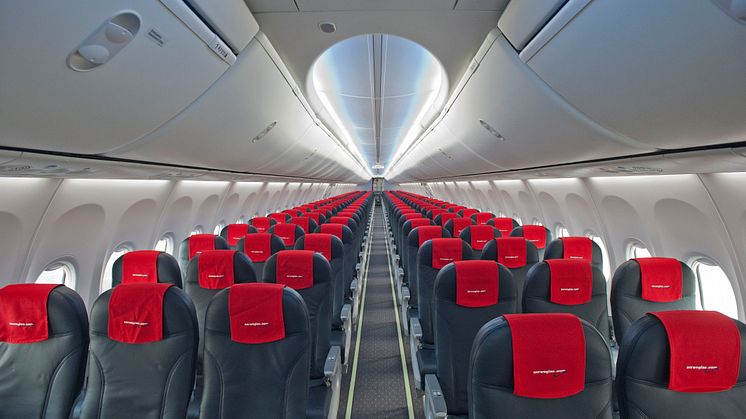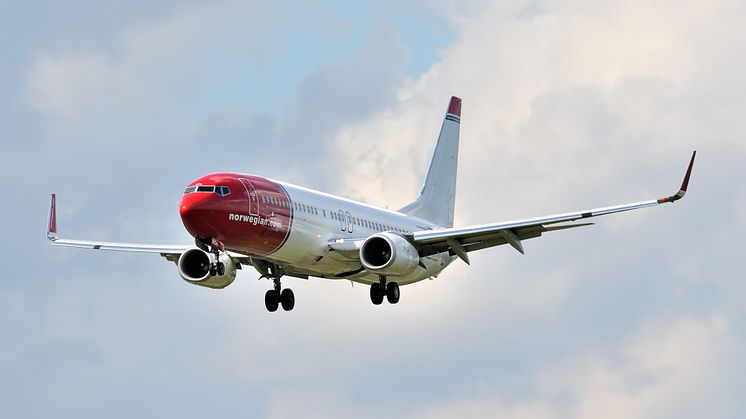Norwegian's traffic figures October 2011
The total number of passengers flown in October 2011 was 1,510,477 compared to 1,268,941 last year, an increase of 241,536 passengers (19 %).
The total number of passengers flown in October 2011 was 1,510,477 compared to 1,268,941 last year, an increase of 241,536 passengers (19 %).
Earnings before depreciation (EBITDA) in the third quarter were MNOK 1,001.2 (623.6).
Norwegian (NAS) today reported third quarter 2011 operating results of 1 BNOK. This is the company's best ever quarterly results. The company’s overall cost is significantly reduced by 10 percent. Brand new aircraft have saved the company as much as 47 MNOK in fuel costs compared to the same quarter previous year.

Norwegian Air Shuttle ASA`s presentation of the third quarter results 2011 will take place at 8:30 AM on Thursday October 20th at DnB NOR's headquarter, Stranden 21, Aker Brygge, Oslo. The results will be presented in Norwegian by the CEO, Bjørn Kjos.
The total number of passengers flown in September 2011 was 1,487,264 compared to 1,213,542 last year, an increase of 273,722 passengers (23 %).
Norwegian experienced a strong passenger growth of 23 percent in September. During the past 12 months, 15 million passengers choose to travel with Norwegian. The overall punctuality for September was 91 percent and the load factor was 81 percent.
Norwegian, Scandinavia’s second largest airline, continues to expand in Finland and launches two new domestic routes from Helsinki to Kittilä and Ivalo and one international route from Turku to Stockholm this winter.

Norwegian (NAS) experienced a strong passenger growth and high punctuality in August. More than 1.5 million passengers flew with the airline, an increase of 19 percent compared to the same month previous year. The overall punctuality was 90 percent.

The total number of passengers flown in August 2011 was 1,526,755 compared to 1,287,471 last year, an increase of 239,284 passengers (19 %).
Norwegian (NAS) continues to report record high passenger figures. Nearly 1.6 million passengers flew with the airline in July, an increase of 21 percent compared to July 2011. The load factor was close to 90 percent, despite a strong capacity increase of 23 per cent.

The total number of passengers flown in July 2011 was 1,596,298 compared to 1,322,695 last year, an increase of 273,603 passengers (21 %).
First half revenue up by 27.5 % to MNOK 4,620 (3,624), quarterly revenue up by 34.1 % to MNOK 2,725 (2,032). Earnings before depreciation and leasing (EBITDAR) in first half were MNOK 117.2 (121.4) and in the second quarter were MNOK 346.9 (144.2). Earnings before depreciation (EBITDA) in first half were MNOK -293.0 (-241.0) and in the second quarter were MNOK 136.6 (-48.7). Net r